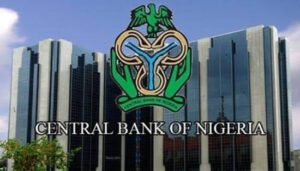
CBN makes strong case for economic diversification
The Director of Trade and Exchange Department, Central Bank of Nigeria (CBN), Dr Ozoemena Nnaji, says there is urgent need to diversify the Nigerian economy to spur growth.
Nnaji made the call during the weekend, at the 33rd Seminar for Finance Correspondents and Business Editors in Abuja.
She said that the status of Nigeria as a mono-product economy had been detrimental to economic growth.
She described a mono-product economy as one that depends on a single product or resource for economic growth and development.
She said that the concept could further be referred to a case where a country depended on a single product for sales or exports for for 70 per cent of its budget funding.
According to her, a mono-product economy is unstable.
“An increase or decrease in the world price of the product will affect the budget of the economy.
“It may witness a high percentage of unemployment; it is import-dependent and cannot stand on its own.
“It weakens the foreign exchange base of the country’s economy,” she said.
She said that such an economy weakend local production of goods that were imported into the country.
“In addition to importing finished goods, a country may also import inflation and other economic effects” she said.
She said that oil and gas accounted for 90 per cent of export income and 85 per cent of government revenue in the first quarter of 2022.
According to her, that makes Nigeria a mono-product economy, owing to its dependence on oil and gas.
She added that a more committed engagement in agriculture would grow the economy faster.
“Nigeria is a hugely agrarian economy which vast arable land, and with a large portion of the population into subsistence agriculture.
“Only less than 40 per cent of the vast arable land is cultivated,” she said.
She said that the overbearing impact of the oil sector on the nation’s economy exposed the country to external shocks whenever there is change in price.
“To insulate the Nigerian economy from the shocks and FX shortages, there is need to develop new strategies.
“It should be aimed at earning more stable and sustainable inflows of FX through diversification of the non-oil export sector,” she said.
She added that diversification would guarantee sectoral dependence and balance in the economy.
According to Nnaji, the need for more sources of export products to reduce importation of goods and services that can be produced locally makes diversification imperative.
“Promotion of international trade that will lead to balance of payment position; the need for a dynamic economy capable of absorbing shocks while maintaining full employment.
“The need for a high rate of economic growth and development,” she said.



